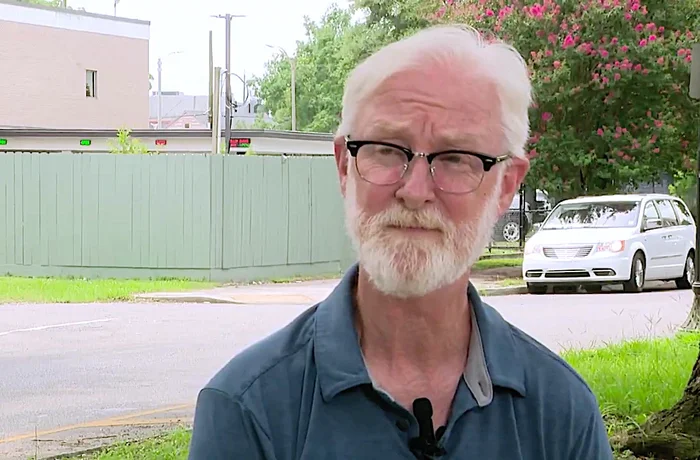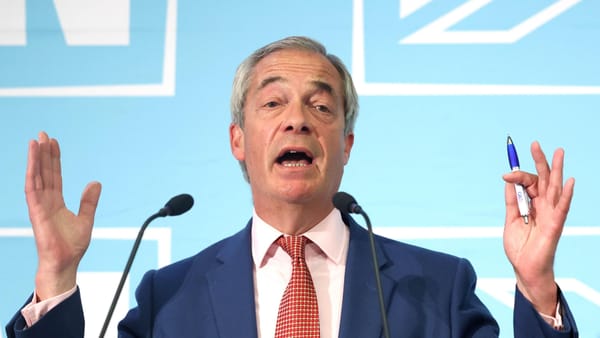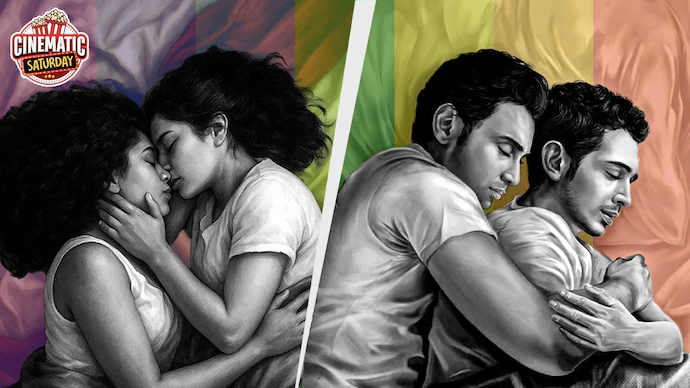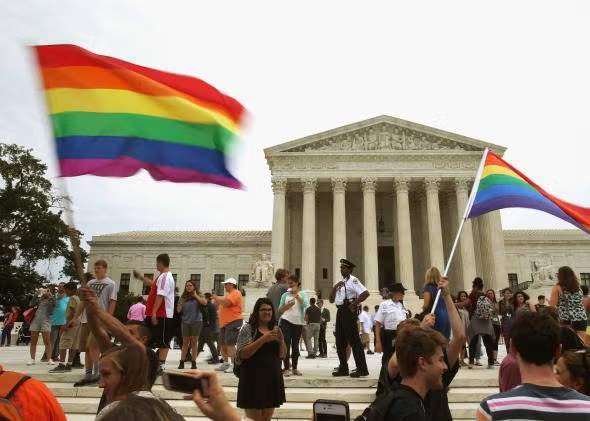Introduction: A Landmark Proposal for Same-Sex Couples
In a significant development for the advancement of LGBTQ+ rights in Hong Kong, the government has put forward a proposal to grant limited legal recognition to same-sex couples whose marriages or civil partnerships are registered abroad. Announced on July 2, 2025, this initiative seeks to provide a framework for healthcare-related rights, marking a cautious but noteworthy step toward addressing the legal disparities faced by same-sex couples in the city. This proposal responds to a landmark ruling by Hong Kong’s Court of Final Appeal in September 2023, which mandated the government to establish an alternative legal framework for recognizing same-sex partnerships within two years. While the proposal does not extend to full marriage equality, it represents a partial victory for activists like Jimmy Sham, who have long campaigned for greater recognition and equality for same-sex couples in Hong Kong.
This article explores the details of the proposed legislation, its historical and cultural context, the legal battles that led to this moment, and the broader implications for Hong Kong’s LGBTQ+ community. It also examines the societal attitudes, political dynamics, and regional comparisons that shape the ongoing struggle for marriage equality in this global financial hub.
The 2025 Proposal: Scope and Limitations
Key Provisions of the Proposed Registration System
The Hong Kong government’s proposal, outlined in a policy paper by the Constitutional and Mainland Affairs Bureau, introduces a registration system that would grant limited legal rights to same-sex couples who have formalized their relationships overseas. Specifically, the system focuses on healthcare-related rights and post-death arrangements. These include:
- Hospital Visitation Rights: Registered same-sex partners would be allowed to visit their loved ones in hospitals, a right often denied to same-sex couples due to lack of legal recognition.
- Access to Medical Information: Partners would have the ability to access medical records and information about their spouse’s health, provided consent is given.
- Medical Decision-Making: In cases where a partner is mentally incapacitated, the registered spouse could act as a guardian to make medical decisions.
- Organ Donation Consent: Registered partners would have the authority to consent to organ donations on behalf of their spouse.
- Post-Death Arrangements: The proposal extends rights to handle a deceased partner’s affairs, such as applying for a death certificate, claiming the body, and arranging funerals or deciding whether remains can be used for medical treatment, education, or research.
To be eligible, couples must meet specific criteria: both partners must be at least 18 years old, their marriage or civil partnership must be legally recognized in the jurisdiction where it was registered, and at least one partner must be a Hong Kong resident. This framework is designed to align with the 2023 court ruling, which emphasized the need for legal recognition to address basic social needs while stopping short of mandating full marriage equality.
Critiques and Concerns from Activists
While the proposal is a step forward, it has drawn criticism from activists for its limited scope and perceived inequalities. Jimmy Sham, a prominent pro-democracy and LGBTQ+ activist who spearheaded the legal challenge leading to the 2023 ruling, expressed skepticism about the proposal’s adequacy. He argued that requiring same-sex couples to marry abroad to gain recognition creates an inherent inequality, as heterosexual couples face no such requirement for their marriages to be recognized locally. Sham stated,
“This doesn’t seem to meet the conditions of equality in registration. I doubt it fully complies with what the judge required.”
Jerome Yau, co-founder of Hong Kong Marriage Equality, echoed these sentiments, describing the proposal as “very conservative” and “far from acceptable.” Yau highlighted the exclusion of local same-sex couples who have not married overseas, noting that this restriction could lead to further legal challenges.
“We believe that will самолето an obvious inequality in the sense of local same-sex couples who are not married overseas won’t be eligible to register their relationships. I think that’s unfair, and potentially that will lead to further litigation,”Yau said. These critiques underscore the tension between incremental progress and the broader push for comprehensive marriage equality in Hong Kong.
Historical Context: The Evolution of LGBTQ+ Rights in Hong Kong
Colonial Legacy and Decriminalization
The journey toward LGBTQ+ rights in Hong Kong has been shaped by its unique history as a former British colony and its current status as a Special Administrative Region (SAR) of China. Homosexuality was decriminalized in Hong Kong in 1991, following a public debate in the 1970s and 1980s about aligning local laws with human rights principles. This reform was influenced by the decriminalization of homosexuality in the United Kingdom in 1967, though Hong Kong’s conservative social climate delayed similar changes. Former Governor Murray MacLehose privately supported gay rights but faced resistance from a society that was not yet ready for such reforms, reflecting the deep-rooted cultural conservatism prevalent at the time.
Early Legal Protections and Resistance
In the decades following decriminalization, progress for LGBTQ+ rights was slow and often met with resistance. In 1993, legislator Anna Wu introduced an Equal Opportunities Bill to outlaw discrimination based on sex, disability, age, race, and sexuality, but the bill failed to include protections for sexual orientation due to opposition from social conservatives, many of whom were influenced by religious groups. Former Chief Executive Donald Tsang, a devout Catholic, publicly opposed a court ruling in the early 2000s that equalized the age of consent for homosexual and heterosexual relationships, illustrating the influence of religious and conservative values in Hong Kong’s political sphere.
Judicial Milestones Leading to 2023
Despite legislative inertia, Hong Kong’s judiciary has played a pivotal role in advancing LGBTQ+ rights. Several landmark court decisions have granted same-sex couples limited legal protections, often in response to challenges arguing that existing laws violated the city’s Basic Law or Bill of Rights. Key milestones include:
- 2009: The Domestic Violence Ordinance was amended to extend limited recognition and protection to cohabitating same-sex couples, marking an early step toward acknowledging same-sex relationships.
- 2013: The High Court ruled that transgender individuals who had undergone gender reassignment surgery could marry their partners, though activists criticized the requirement for complete surgery as overly restrictive.
- 2019: The Court of Final Appeal ruled in favor of a gay civil servant, granting same-sex spouses of government employees the same spousal benefits as opposite-sex spouses. This decision also extended to joint tax assessments, overturning prior discriminatory policies.
- 2021: The Court of First Instance granted equal parental rights to a lesbian couple, recognizing the non-biological mother’s rights to joint custody and guardianship despite the lack of legal recognition of their relationship.
- 2023: The Court of Final Appeal’s ruling in Sham Tsz Kit v Secretary for Justice mandated the government to establish a legal framework for same-sex civil unions within two years, citing the absence of such a framework as discriminatory and a violation of the Bill of Rights.
These judicial victories highlight the courts’ role as a primary avenue for advancing LGBTQ+ rights in Hong Kong, particularly in the absence of proactive legislative action. However, they also reflect the incremental nature of progress, as each ruling has addressed specific issues rather than granting comprehensive equality.
The 2023 Court of Final Appeal Ruling: A Turning Point
Details of the Landmark Decision
The September 2023 ruling by Hong Kong’s Court of Final Appeal was a defining moment for the city’s LGBTQ+ community. The case, Sham Tsz Kit v Secretary for Justice, was brought by Jimmy Sham, who had married his partner in New York in 2013 and sought legal recognition of their marriage in Hong Kong. The court addressed three key questions:
- Does excluding same-sex couples from marriage violate the right to equality under the Basic Law and Bill of Rights?
- Does the lack of an alternative legal framework, such as civil unions, violate rights to privacy and equality?
- Does the refusal to recognize foreign same-sex marriages violate equality rights?
In a unanimous decision, the court upheld that marriage, as defined under the Basic Law, is confined to opposite-sex couples, rejecting Sham’s appeal for full marriage equality. However, by a 3-2 majority, Justices Joseph Fok, RAV Ribeiro, and Patrick Keane ruled that the absence of any legal framework for recognizing same-sex relationships was discriminatory and violated the government’s obligations under the Bill of Rights.
“The absence of legal recognition has been seen to be essentially discriminatory and demeaning to same-sex couples,”the judges noted, emphasizing the need for a framework to address “basic social needs” such as healthcare access, inheritance, and relationship legitimacy.
The court gave the government two years—until September 5, 2025—to establish an alternative framework, suspending a declaration of rights violation to allow time for compliance. This ruling was celebrated as a partial victory by activists, as it compelled the government to act while leaving open questions about the scope and implementation of the proposed framework.
Jimmy Sham: The Activist Behind the Case
Jimmy Sham, the lead plaintiff in the case, is a prominent figure in Hong Kong’s pro-democracy and LGBTQ+ movements. A co-founder of the Civil Human Rights Front, Sham has been a vocal advocate for both democratic reforms and marriage equality. His activism has not come without cost; Sham was imprisoned under Hong Kong’s national security law for his role in an unofficial primary election and was released in May 2025. Despite his incarceration, Sham’s five-year legal battle culminated in the 2023 ruling, which has set the stage for the current proposal. His critique of the 2025 proposal reflects his broader vision for equality, including equal prison visitation rights for same-sex couples, a right he argues should not be contingent on overseas marriage registration.
Cultural Context: Shifting Attitudes in Hong Kong
Public Support for Same-Sex Marriage
Hong Kong’s societal attitudes toward same-sex relationships have evolved significantly over the past decade. A 2014 University of Hong Kong poll found that only 27% of respondents supported same-sex marriage, with 74% agreeing that same-sex couples should have some or all of the rights enjoyed by heterosexual couples. By 2017, support for same-sex marriage had risen to 50.4%, and a 2023 survey conducted by three universities reported that 60% of Hong Kong residents now support marriage equality. This growing acceptance reflects broader cultural shifts, particularly among younger generations, who are more exposed to global human rights movements and progressive values.
Events like Pink Dot Hong Kong, an annual carnival celebrating gay pride, have also contributed to normalizing LGBTQ+ identities. The 2023 event, which drew over 13,000 attendees, showcased a vibrant community advocating for inclusion and diversity. The success of such events, alongside international gatherings like the Lesbian Gay Film Festival and the Gay Games held in Hong Kong in 2023, underscores the city’s growing openness to LGBTQ+ rights, even amidst political challenges.
Conservative Resistance and Political Dynamics
Despite rising public support, conservative opposition remains a significant barrier. Members of Hong Kong’s pro-Beijing camp, which dominates the legislature following 2021 reforms that ousted pro-democracy lawmakers, have consistently opposed legal recognition for same-sex couples. Pro-Beijing lawmaker Priscilla Leung, for instance, warned that the 2025 proposal could “open a Pandora’s box and cause endless disputes in society,” reflecting a traditionalist view that marriage should be restricted to opposite-sex couples. Religious institutions, particularly the Catholic Church, have also opposed same-sex marriage, though a 2023 Vatican declaration, Fiducia Supplicans, allowed Catholic priests to bless same-sex couples in a limited capacity, signaling a slight softening of stance.
The political landscape in Hong Kong, shaped by the 2020 national security law and subsequent electoral reforms, has limited the space for progressive legislative change. The exclusion of pro-democracy lawmakers has tilted the Legislative Council toward conservative and pro-Beijing interests, making judicial intervention the primary avenue for advancing LGBTQ+ rights. This dynamic highlights the tension between Hong Kong’s globalized, cosmopolitan identity and its conservative cultural and political undercurrents.
Regional Comparisons: Same-Sex Unions in Asia
Progress in Neighboring Jurisdictions
Hong Kong’s proposal places it within a small but growing group of Asian jurisdictions recognizing same-sex unions. Taiwan became the first Asian country to legalize same-sex marriage in 2019, setting a regional benchmark. Nepal followed in 2023 with a temporary registration system for same-sex marriages, while Thailand legalized same-sex marriage in 2024. These developments contrast with mainland China, where same-sex unions are not recognized, and no specific anti-discrimination laws protect LGBTQ+ individuals. Hong Kong’s unique status as an SAR with a distinct legal system allows it greater flexibility than the mainland, but its progress lags behind Taiwan and Thailand.
The 2023 ruling and the 2025 proposal position Hong Kong as a potential leader in LGBTQ+ rights in Asia, particularly among financial hubs like Singapore and Tokyo, where similar pressures to attract global talent are driving calls for more inclusive policies. However, the limited scope of Hong Kong’s proposal—focusing on healthcare and post-death rights rather than full marriage equality—reflects a cautious approach shaped by local conservatism and political constraints.
Global Context: Marriage Equality Worldwide
Globally, over 30 countries have legalized same-sex marriage since the Netherlands became the first in 2001. These include progressive democracies like Canada, Australia, and much of Western Europe, as well as emerging leaders in Asia and Latin America. Hong Kong’s proposal, while limited, aligns with a global trend toward recognizing same-sex relationships, albeit through alternative frameworks like civil unions in some jurisdictions. The requirement for overseas registration mirrors policies in countries that recognize foreign same-sex marriages but do not permit local ones, such as Israel and certain Eastern European nations.
Musical and Cultural Expressions of LGBTQ+ Identity in Hong Kong
LGBTQ+ Representation in Hong Kong’s Cultural Scene
Hong Kong’s vibrant cultural scene has increasingly embraced LGBTQ+ themes, contributing to greater visibility and acceptance. The Hong Kong Lesbian and Gay Film Festival, held annually, showcases stories of love, identity, and resilience, providing a platform for both local and international queer voices. Music has also played a role in amplifying LGBTQ+ narratives. Artists like Anthony Wong and Denise Ho, both openly queer, have used their music to challenge societal norms and advocate for equality. Wong’s 2016 song “I Am Who I Am” became an anthem for self-acceptance, while Ho’s activism and music have made her a prominent figure in both the pro-democracy and LGBTQ+ movements.
Events like Pink Dot Hong Kong often feature musical performances that celebrate diversity, with local artists using pop, Cantopop, and indie genres to express solidarity with the LGBTQ+ community. These cultural expressions have helped shift public perceptions, particularly among younger audiences, and have created spaces for dialogue about equality in a city where political activism faces increasing restrictions.
Challenges and Future Prospects
Political and Social Hurdles
The 2025 proposal faces several challenges, including opposition from pro-Beijing lawmakers and conservative religious groups. The government’s cautious approach, limiting the proposal to healthcare and post-death rights, reflects an attempt to balance progressive demands with conservative resistance. The exclusion of rights related to housing, inheritance, and taxation—issues addressed in prior court rulings—has disappointed activists who see the proposal as falling short of the comprehensive framework mandated by the 2023 ruling.
Moreover, the requirement for overseas registration excludes many local same-sex couples who cannot afford or access international marriage options, raising concerns about accessibility and equality. The lack of a clear timeline for passing the legislation, as noted by Secretary for Constitutional and Mainland Affairs Erick Tsang, further fuels uncertainty about the proposal’s implementation.
The Path to Full Marriage Equality
Activists like Jimmy Sham and Jerome Yau continue to advocate for full marriage equality, arguing that incremental measures, while welcome, do not address the systemic inequalities faced by same-sex couples. Organizations like Hong Kong Marriage Equality are mobilizing community support and engaging with stakeholders across sectors to push for legislative reforms. Their three-pronged strategy—legislative advocacy, community engagement, and coalition-building—aims to sustain pressure on the government and foster broader societal acceptance.
The growing public support for same-sex marriage, as evidenced by the 2023 survey, suggests that Hong Kong is at a tipping point. However, the city’s political environment, shaped by Beijing’s influence and the marginalization of pro-democracy voices, poses significant obstacles. The judiciary remains a critical battleground, with activists likely to pursue further litigation if the government fails to meet the 2023 ruling’s requirements by September 2025.
Conclusion: A Cautious Step Forward
Hong Kong’s proposed registration system for same-sex couples married abroad is a historic step toward recognizing the rights of the LGBTQ+ community. By addressing healthcare-related needs and post-death arrangements, the proposal responds to a landmark 2023 court ruling and reflects the growing public support for equality, with 60% of residents favoring same-sex marriage. However, its limitations—particularly the exclusion of local couples and broader rights like housing and taxation—highlight the challenges of navigating a conservative political and cultural landscape.
The journey toward marriage equality in Hong Kong is far from over. Activists, supported by a vibrant cultural scene and shifting societal attitudes, continue to push for comprehensive reforms. As Hong Kong balances its globalized identity with local traditions, the outcome of this proposal will shape not only the lives of same-sex couples but also the city’s reputation as a hub of diversity and inclusion in Asia.



















0 Comments